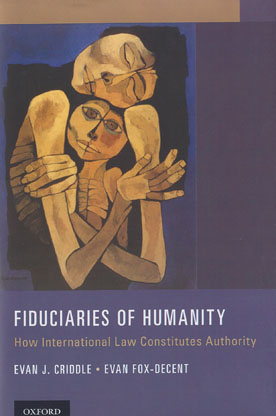
Public international law has embarked on a new chapter. Over the past century, the classical model of international law, which emphasized state autonomy and interstate relations, has gradually ceded ground to a new model. Under the new model, a state's sovereign authority arises from the state's responsibility to respect, protect, and fulfill human rights for its people.
In Fiduciaries of Humanity: How International Law
Constitutes Authority, Evan J. Criddle and Evan Fox-Decent argue that these developments mark a turning point in the international community's conception of public authority.
In contrast to the receding classical model of public international law, which assumes an abiding tension between a state's sovereignty and principles of state responsibility, the fiduciary theory reconciles state sovereignty and responsibility by explaining how a state's obligations to its people are constitutive of its legal authority under international law.
The authors elaborate and defend the fiduciary model while exploring its application to a variety of current topics and controversies, including human rights, emergencies, the treatment of detainees in counterterrorism operations, humanitarian intervention, and the protection of refugees fleeing persecution.